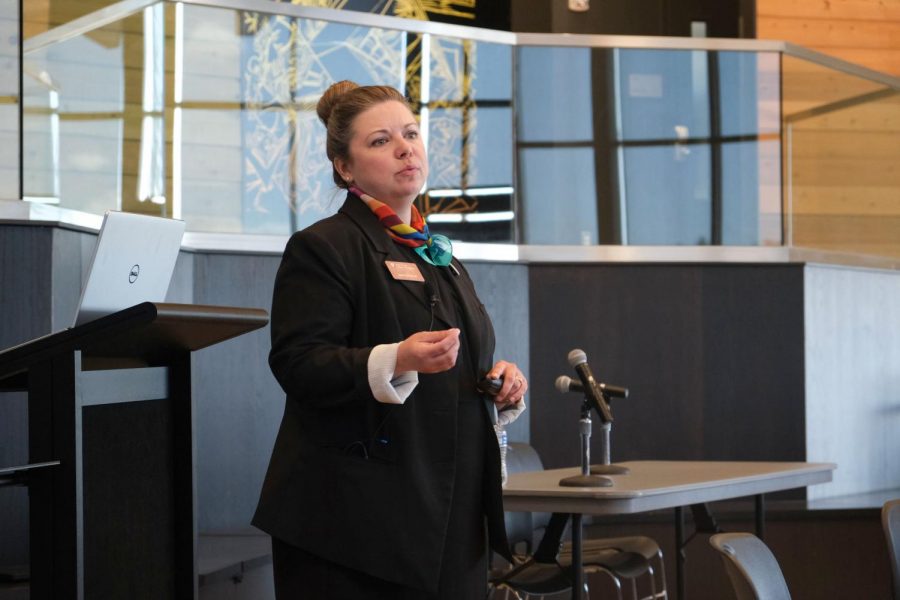GIESORC holds gender affirming healthcare symposium
Event informs about transgender, non-binary healthcare issues
JACOB BERTRAM | THE DAILY EVERGREEN
Jaime Bowman, clinical assistant professor at the Elson S. Floyd College of Medicine, discusses communication between doctors and patients during a symposium on gender-affirming healthcare Monday afternoon.
May 9, 2019
WSU’s Gender Identity/Expression and Sexual Orientation Resource Center held its first Gender Affirming Healthcare Symposium on Monday.
The six-hour-long event focused on mental health and medical needs for transgender and non-binary individuals, and had a panel of student speakers.
The symposium informed healthcare providers on how to care for transgender and non-binary patients. The event also provided information for transgender and non-binary individuals on how to navigate the healthcare system.
The easiest and, oftentimes, the first step in gender affirmation is asking someone’s preferred pronoun, said Leslie Robison, a clinical psychologist for Pullman Regional Hospital. If a wrong pronoun is mistakenly used, a quick correction and acknowledgment by both parties prevents further confusion.
A doctor misidentifying a patient’s gender is only one of the issues transgender or non-binary patients may face when seeking healthcare.
A report conducted by the National Gay and Lesbian Task Force at the National Center for Transgender Equality found that 19 percent of transgender or non-binary patients were denied treatment.
The report also found that 28 percent postponed treatment due to discrimination, and 50 percent had healthcare providers who lacked knowledge on transgender care.
Jaime Bowman, clinical assistant professor at the Elson S. Floyd College of Medicine, spoke at the event about her experiences with transgender and non-binary patients.
“To be in a space with all these different allied health professionals and have everybody wanting that same positive outcome for vulnerable marginalized patients, we now know who to lean on and who we can go to for support and help,” Bowman said.
Bowman said the student speakers at the symposium are attuned and committed to advocacy work and so she looks forward to seeing what they do.
Robison said there is a lack of role models or mentors for individuals seeking healthcare, particularly among the LGBT community.
Children tend to look up to their parents and compare themselves to them, Robison said. Transgender or non-binary people may not have a role model who they can look up to or turn to when facing an issue.
With over 80 participants in attendance, GIESORC Director Matthew Jeffries said he was pleased with the turnout.
“We’ve met our capacity for what we’ve set up for,” Jeffries said. “All the presenters are very funny and were able to connect with the audience.”




















